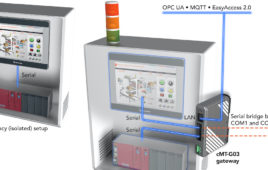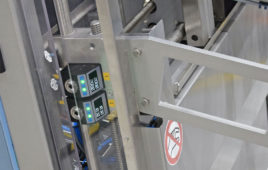The jury is still out on whether the influx of automation and artificial intelligence (AI) in the workplace will improve or reduce the number of jobs. While it’s clearly inevitable that AI and machinery will impact the workforce size of several different industries, to what extent remains to be seen. Both sides of the aisle have presented viable arguments on why the incorporation of AI and automation in the workplace will or won’t take away jobs from workers, but we won’t truly know for a number of years.
Since the growing automation of workplaces is a worldwide phenomenon, workers across the globe have all reacted, in terms of how many individuals fear losing their job to automation, its effects on the work environment, and willingness to retrain or embrace a new role. In the United States, for example, a study by Randstad US Today found only 14 percent of US employees fear losing their position to automation, while 30 percent of participants think digitization will improve their job performance and efficiency.
With the promise of an unchanged or higher salary, 51 percent of US workers surveyed would be happy to retrain or upskill, while a staggering 84 percent of participants believe AI and robotics will positively impact their workplace. 48 percent of those surveyed believe automation and machine learning has transformed or positively impacted their workplace over the last year, while only six percent of respondents believe increased automation will significantly impact workforce planning and shift the talent needed.
These figures are slightly similar among employees on the other side of the globe. In Australia, research conducted by the firm Telsyte took a broad look across the country’s businesses and rapid adoption of new technologies like AI, automation, wearables, drones, along with augmented and virtual reality. The study determined 25 percent of workers fear AI and automation will make them obsolete at their current jobs, while 45 percent of participants think the future will be better from the opportunities these technologies offer.
Along with low- to mid-level employees surveyed, nearly two-thirds (65 percent) of chief information officers who participated in the study, see bountiful opportunities in deploying technologies such as machine learning on aspects like financial modelling and fraud detection. Roughly two-thirds of Australian businesses and organizations are already (or intend on) experimenting with technologies like deep learning, cognitive computing, or incorporating AI and automation to improve workplace operations. Nonetheless, many workers ultimately remain optimistic but wary of digitization in their workplace, despite constant reassurances that these technologies will merely augment (instead of take) jobs.
In markets like Singapore, Malaysia, and Hong Kong, the sentiments towards AI and automation among workers are similar. According to another Randstad survey, 19 percent of employees in Singapore fear losing their jobs to automation, while 20 percent of workers in Hong Kong share the same sentiment. 72 and 52 percent of workers in Singapore and Hong Kong are respectively open to retraining for a new role if their salaries increase or remain the same. Optimism about automation improving the workplace and their jobs varied with 45 percent of Singapore workers feeling positive about this outlook, while 39 percent felt the same among Hong Kong workers.
Malaysian employees felt slightly different about automation compared to their regional counterparts. 13 percent of Malaysian workers surveyed are concerned about their job security being affected by increased automation and AI, while 51 percent feel these technologies are positively improving their workplace and jobs. Roughly 70 percent of Malaysian workers would be open to retraining or embracing a new role if it meant an increase or their salary remaining unchanged. Among workers of all three nations surveyed, one-third felt indifferent towards automation and believed it wouldn’t affect their jobs, while 20 percent of employees surveyed said they couldn’t imagine losing their jobs to automation and AI.
While the research didn’t break down any claims with specific percentages, concerns of losing jobs to automation and AI are among the top for citizens in the UK. 1600 adults were surveyed, and the results determined job security and conceivable affecting factors were among the greatest concerns of those that were surveyed. Losing jobs to automation, outsourcing, and the impact of the job market in the wake of Brexit topped the list of concerns among participants. The participants revealed these were greater concerns for them than other issues like effects the influx of immigration is having on the country.
The hysteria surrounding automation and AI taking jobs from people has made plenty of people concerned throughout the world, but the consensus of workers (based on the data this piece analyzes) don’t seem overly worried. In fact, it seems most workers in different countries are largely embracing the changes and improvements AI and automation are bringing to their industries, while recognizing the increases in production and performance these technologies help facilitate.
Filed Under: Virtual reality, M2M (machine to machine)




